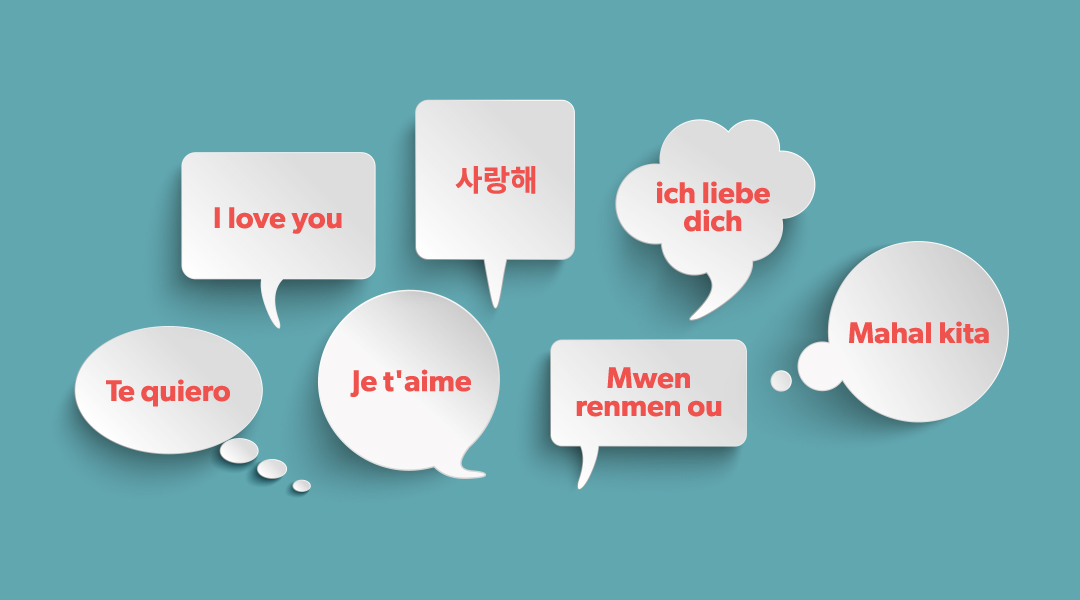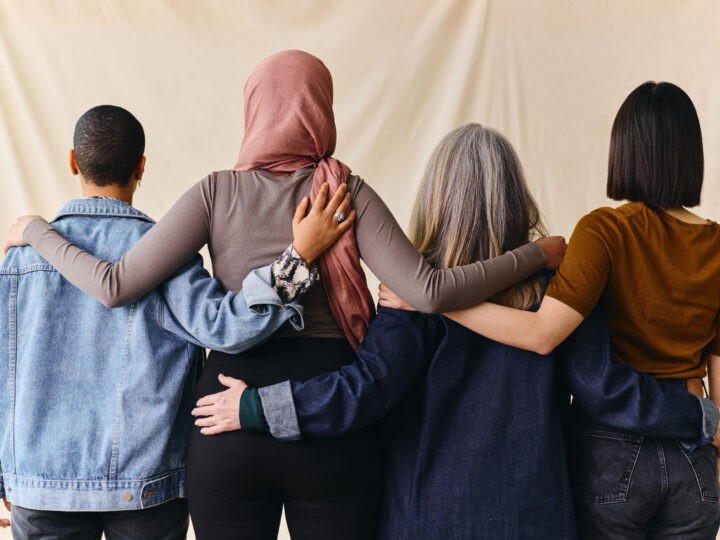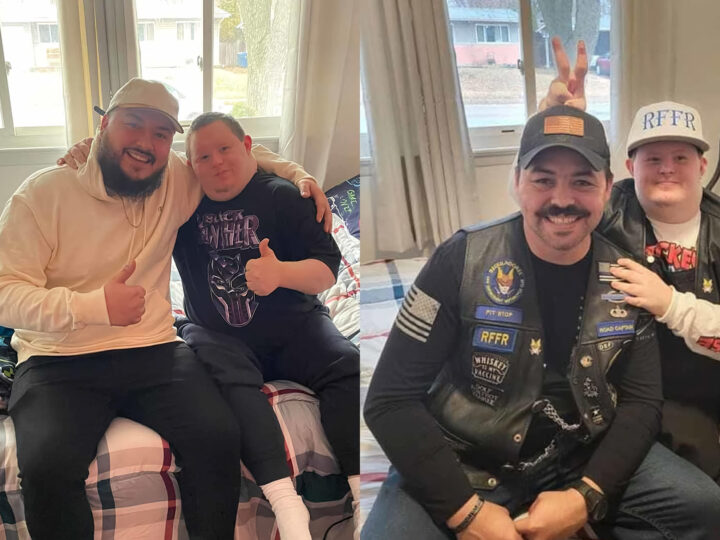
How the iconic expression differs across cultures
The phrase “I love you” is universally understood and used across all cultures, but how it’s used, when, and in what context tends to vary widely. Interestingly people for whom English is not their native language tend to say “I love you” in English most of the time. Of course, differences also exist across sex and age groups with women sharing the expression more than men. The good news is that overall people are saying “I love you” more often. These are some of the fascinating results revealed in Emotion expression and the locution “I love you”: A cross-cultural study conducted by City University of New York (CUNY).
The phrase is used most frequently in relationships with lovers (62%) followed by parents (40%) grandparents (38%) with their children or grandchildren. Only 34% of married couples said “I love you” was spoken frequently with the majority (46%) saying it was shared occasionally. Among friends, the majority of respondents (44%) said the phrase was shared occasionally, while 53% said they rarely expressed it to their siblings. Never was the most common response (81%) in relationships with neighbors and co-workers. The phrase was most often expressed verbally and overwhelmingly by females. For those who spoke English but it was not their native language, 67% said they chose to say “I love you” in English and that doing so was a conscious choice.
When asked to define the parameters in which “I love you” was used in their culture, respondents often stressed romantic relationships and emphasized the “weight” and seriousness of its meaning. Others said it was understood that they were loved and they didn’t need to hear it all the time. Here are some of their responses that display different understandings of love and sometimes the openness or closure to it.
Maria (Polish, female)
“I know that if I would tell my parents straightforward that I love them they would not feel comfortable, same thing with my sister. We [Polish people] know we love each other but we don’t say it straight to somebody’s face if it is not our husband or wife.”
Pete (Syrian, male)
“‘I love you’ is a more serious and committing term in other cultures. Middle eastern girls I know who hear that from a guy automatically think marriage.”
Christy (Chinese, female)
“Every time when I go back home, my father always go to kitchen and asks me what I want to eat. He doesn’t say anything but make food for me quietly. It is very touching every time when I see my father does it. Love doesn’t have to be express verbally… In China, men are always the heads of the families. In order to show men’s power, they don’t say ‘I love you’ easily because it is considered emotional when they say it… I am considering myself as the second generation in United States. Therefore, I have learned how to say ‘I love you’ and not to hide my feeling inside.”
Sam (Guyanese, ethnic Indian, male)
“In a family it is usually understood that your parents love you; children don’t expect to hear it all the time… I don’t remember the last time my parents have told me that they love me, neither do I remember when my brother or sister has done it, but it doesn’t bother me…In my culture, it is normal to wait a long time before telling someone that you love them, and it is not also done frequently because it will lose its meaning.”

Sally (Jamaican, female)
“I dated someone American who thought I was cold because I didn’t say the word. I just can’t use the word so freely. Love is a very strong word, and I want to make sure that I mean it and not say because it is expected of me… I usually can write it but not say to people…’I love you’ is said when you won’t see the person for some time or they are traveling, or it’s a special day.”
Jung (Korean, female)
“I don’t know why, but in my culture, to tell a person ‘I love you,’ so hard to come out from a mouth. We feel in heart but to say it is a very hard thing to do… My culture believes verbal declaration of love is not important. Older people says verbal declaration occur when people were young and passionate in their hearts.”
Michael (Slovak, male)
“In average Eastern European settings (family, friendship, and romance) ‘I love you’ is rather scarce, arguably due to considerable weight of the expression. Our people believe that gravity of expressing love is way too great to be diminished by spontaneous moments of urge to say ‘I love you.'”
Adis (Cuban, female)
“… in the Cuban culture, people tend to speak very loud and are not afraid to express their feelings. My family members tell you upfront that they love you. They are not emotionally restrained at all.”
Carlos (Colombian, male)
“It’s something that Latin people don’t really hold back on verbally. The word is sometimes thrown around like a love struck teenager.”
Maurice (Jewish, male)
“Men don’t really say ‘I love you’ in my culture. We use nonverbal declarations. The men in my family and possibly culture are notoriously lazy and thoughtless; so when we actually do something not lazy and thoughtful it’s our way of saying ‘I love you.'”
Sue (Romanian, ethnic Hungarian, female)
“It’s quite embarrassing for me to see a man all emotionally exposed; I shut them down… My partner is American who feels the urge of declaring his love to me verbally and nonverbally way too often. And he is hurt by my reaction or lack of response. It took me four years, but I learned that it is important to him, so I let him say it, and I say it back, surprisingly easily. English is not my first, second or third language, saying ‘I love you’ means nothing to me. I wouldn’t dare say it in Hungarian to anyone.”
Dina (Puerto Rican, female)
“My husband does not like to say ‘I love you,’ so nonverbals are important for me to watch out for… My husband feels that love should be shown, not constantly said.”
Pat (African-American, female)
“My husband is Caribbean and I am American. We have been married for thirteen years, but together for 21 years. In that time I have seen him grow from holding back his emotions to now being more verbal about sharing his love for me, with me by verbally telling me, instead of keeping it to himself. I, on the other hand, have always shown my love and tell him so every chance I get.”
Pam (Columbian, female)
“On the phone, when I speak to my dad, I tell him that I love him and miss him. For me it’s mostly on the phone and sometimes but rarely in the person’s face.”
JOIN THE MOVEMENT
Subscribe to our newsletter and receive inspirational stories delivered to your inbox that spread love, updates on our movement, and notifications on upcoming deals & events.




